China move to reset strained ties as Wang Yi visits New Delhi
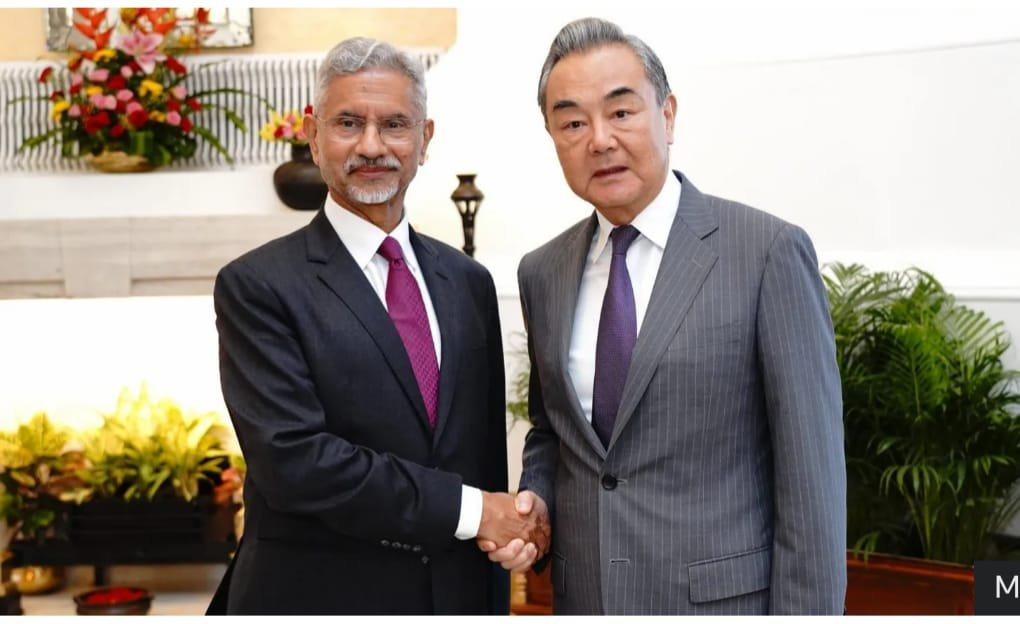
India and China signalled a cautious thaw in their strained relationship on Monday, as Chinese Foreign Minister Wang Yi arrived in New Delhi for a two-day visit aimed at stabilising ties that ruptured after deadly border clashes in 2020. “India and China should see each other as partners, not adversaries or threats,” Wang told reporters after meeting his Indian counterpart, S Jaishankar. Relations, he said, were now on a “positive trend” toward cooperation. The visit marks only the second ministerial-level meeting between the neighbours since the Galwan Valley clashes in Ladakh, where soldiers on both sides were killed in the bloodiest confrontation in decades. Jaishankar struck a cautiously optimistic tone, saying the two sides were working to “move ahead from a difficult period in our ties”. The ministers discussed a range of issues including trade, river data sharing, and religious pilgrimages to Tibet. On Tuesday, Wang also met India’s National Security Adviser Ajit Doval, with both sides reaffirming progress in negotiations to resolve the long-running boundary dispute. “Stability has now been restored at the borders,” Wang said during delegation-level talks. Signs of rapprochement The two Asian powers have taken tentative steps to normalise relations since October last year, when they agreed on new patrolling arrangements along their contested Himalayan frontier. Beijing has since allowed Indian pilgrims to visit sites in Tibet, while New Delhi has resumed visas for Chinese tourists and revived talks on reopening border trade through designated passes. There are also indications that direct flights between the two countries could resume later this year. Wang’s trip is expected to prepare the ground for Prime Minister Narendra Modi’s upcoming visit to China for the Shanghai Cooperation Organisation (SCO) summit — his first in seven years. Reports suggest a possible bilateral meeting with Chinese President Xi Jinping, though neither side has confirmed it. US pressure The rapprochement comes as New Delhi’s ties with Washington face fresh strain. Earlier this month, President Donald Trump imposed additional 25 percent tariffs on Indian imports, raising overall duties to 50 percent — the steepest in Asia — in retaliation for India’s continued purchases of Russian oil and weapons. White House Trade Adviser Peter Navarro accused India of “cozying up to both Russia and China” in an opinion piece for the Financial Times, arguing that India was acting as a “global clearinghouse” for Moscow’s crude exports despite Western sanctions. “If India wants to be treated as a strategic partner of the US, it needs to start acting like one,” Navarro wrote. Multipolar ambitions Speaking after his talks with Wang, Jaishankar pushed back against suggestions that India was aligning with any single power bloc. “We seek a fair, balanced and multipolar world order, including a multipolar Asia,” he said. “Reformed multilateralism is the call of the day.” For both Beijing and New Delhi, analysts say, the reset reflects a pragmatic calculation: stabilising a volatile border while navigating an increasingly fractured global order.
M1xchange targets to double business in West Bengal as MSME credit seen crossing ₹2 trillion by FY26
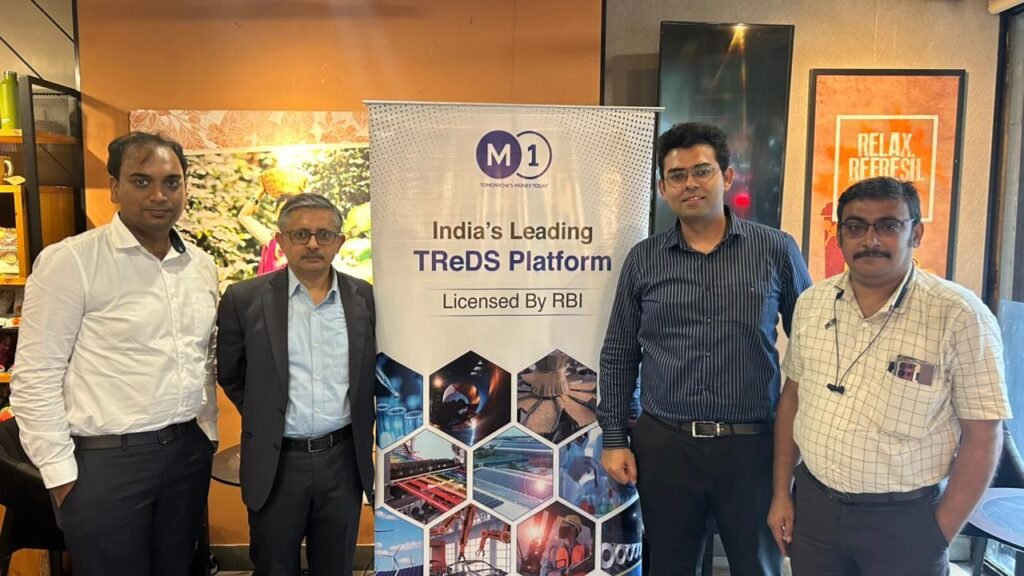
India’s Trade Receivables Discounting System (TReDS) platform M1xchange said on Tuesday it plans to double its business in West Bengal, as credit to the state’s micro, small and medium enterprises (MSMEs) is projected to cross ₹2 trillion ($24 billion) by the end of fiscal 2026. West Bengal, home to nearly 10 million MSMEs and over 4.6 million units registered under Udyam, is one of India’s leading states for manufacturing, trade and exports. Credit to the sector rose 7.5% year-on-year, reflecting rising demand for working capital, according to industry data. M1xchange, licensed by the Reserve Bank of India, facilitates invoice discounting for MSMEs, providing them with faster access to credit from banks and non-bank lenders without collateral. The company said it is focusing on sectors such as infrastructure, auto components, electricals, textiles and agriculture in West Bengal, which it sees as key growth drivers. “MSME credit in West Bengal is projected to cross ₹2 lakh crore by FY26. We at M1xchange are committed to contributing meaningfully to this growth story,” said Kaustubh Srivastava, senior director at M1xchange. “We aim to offer competitive, collateral-free financing options via TReDS, helping businesses grow without cash flow constraints.” So far, M1xchange has facilitated more than ₹2 trillion worth of invoice discounting across India, working with 60,000 MSMEs, over 3,000 corporates and 69 banks and NBFCs. It expects its throughput value – the total invoices processed – to reach ₹1.25 trillion by March 2026, up from ₹780 billion in FY25. In West Bengal, more than 10% of corporates and MSMEs on the platform are from the state. Around 300,000 invoices uploaded by Bengal-based businesses have contributed nearly ₹200 billion to M1xchange’s overall transaction volume. M1xchange has also launched a “small-to-small financing” initiative, expanding TReDS access to tier-2 and tier-3 MSMEs, enabling them to secure early payments at competitive rates. The company said its growth plans align with state-led initiatives to promote exports and digitisation among small businesses.
Bangladesh denies approval for mosque construction near revered Hindu temple in Sitakunda
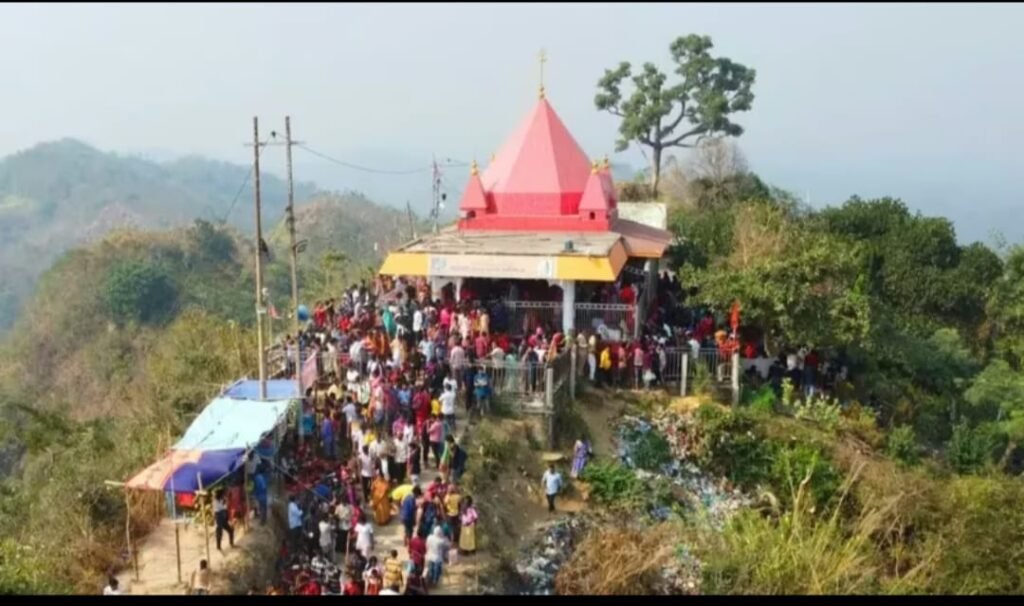
Chattogram, Bangladesh – Authorities in Bangladesh have denied granting permission for the construction of a mosque on Chandranath Hill in Sitakunda, a site that is home to one of the subcontinent’s most sacred Hindu pilgrimage destinations. In a statement issued on Sunday, August 17, Sitakunda Upazila Executive Officer Mohammad Fakhrul Islam said a viral social media post claiming that a mosque was being built near the Chandranath Temple was “misleading” and “without basis.” “As soon as the post came to our attention, law enforcement agencies and intelligence units were instructed to closely monitor the matter and take necessary action,” the statement read. It further clarified that no individual or group has formally approached the administration seeking approval for mosque construction in the area. Chandranath Hill, located in Chattogram’s Sitakunda upazila, is revered as a holy site by Hindu devotees from across South Asia. Pilgrims visit year-round to worship at temples dedicated to Lord Shiva and other deities. Local officials, including police officers, shrine committee members, and forest department staff, inspected the site on Sunday and reported no evidence of mosque construction. “We assure our Hindu community that no approval has been given for building a mosque at Chandranath Temple premises,” the administration said. The statement also warned against attempts to use social media to spread “rumours, propaganda, or disinformation” aimed at disturbing communal harmony. Legal action will be taken against those seeking to incite tensions, the administration cautioned. Sitakunda is often held up as an example of religious coexistence in Bangladesh, where Muslims, Hindus, Buddhists, and Christians have lived peacefully for generations. “The people of Sitakunda deeply respect the beliefs and sentiments associated with Chandranath Temple,” the statement said. The announcement comes after a series of Facebook posts alleging mosque construction near the temple went viral, triggering concerns among local Hindu devotees. By publicly clarifying the situation, authorities said they hoped to preserve peace and reassure communities that no such project had been authorised.
Shah set to inaugurate Durga Puja celebrations in Kolkata, BJP signals cultural push before polls
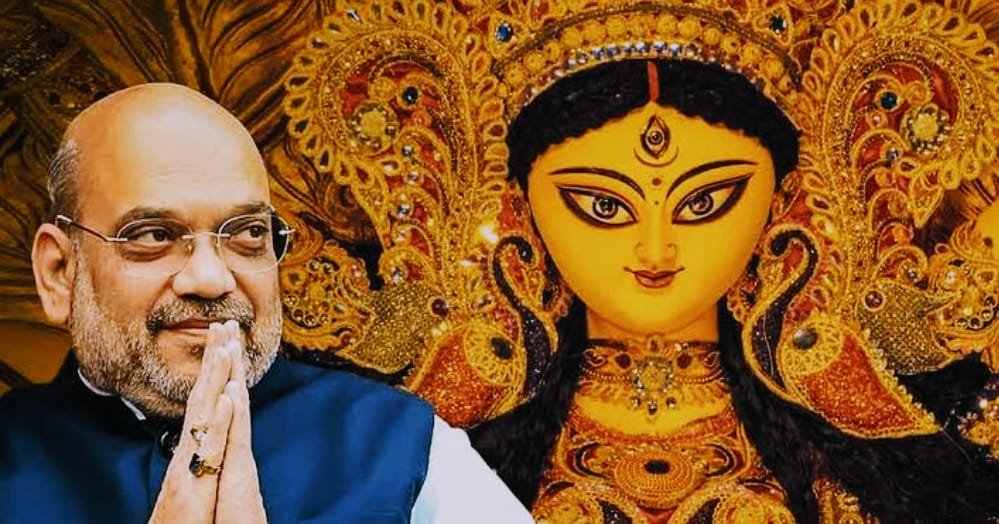
Kolkata, India – India’s Home Minister Amit Shah is expected to inaugurate two Durga Puja celebrations in Kolkata this September, marking his return to Bengal’s biggest cultural festival after a year’s gap. The move comes just months ahead of the 2026 state elections, underscoring the Bharatiya Janata Party’s (BJP) bid to deepen its presence in West Bengal’s cultural landscape. According to BJP sources, Shah is scheduled to arrive in Kolkata on September 22, a day after Mahalaya which signals the beginning of the festival’s Devi Paksha (the fortnight dedicated to the goddess). He is likely to inaugurate the Durga Puja at Santosh Mitra Square — a high-profile community puja in central Kolkata — followed by another at the Eastern Zonal Cultural Centre (EZCC) in Salt Lake, organised under the banner of the “Paschimbanga Sanskriti Mancha,” a BJP-backed cultural platform. In 2023, Shah inaugurated the Santosh Mitra Square puja, themed around the Ram Mandir in Ayodhya. The EZCC puja, meanwhile, has been a BJP initiative since 2020, when Prime Minister Narendra Modi virtually launched it during the pandemic. This year, Santosh Mitra Square is adopting the theme “Operation Sindoor,” while BJP’s cultural cell, led by actor-turned-politician Rudranil Ghosh, is steering the EZCC celebration. Despite BJP’s confidence, the official confirmation of Shah’s visit is still awaited from the Ministry of Home Affairs. Until then, both puja committees are refraining from public announcements. Durga Puja, recently recognised by UNESCO as an Intangible Cultural Heritage of Humanity, is Bengal’s largest festival and a significant stage for political signalling. While Kolkata’s marquee pujas are usually helmed by non-political community groups, the BJP has sought to carve out its own space in the celebrations, projecting the involvement of its central leaders as a show of strength. Shah’s last inauguration in 2023 came months after the BJP suffered setbacks in the Lok Sabha elections in Bengal. His return to the city’s festive stage this year, BJP insiders suggest, is aimed at energising the party’s cadre and reclaiming lost ground before the assembly polls.
HC warns Abhishek Banerjee of ex-parte order in Diamond Harbour poll case
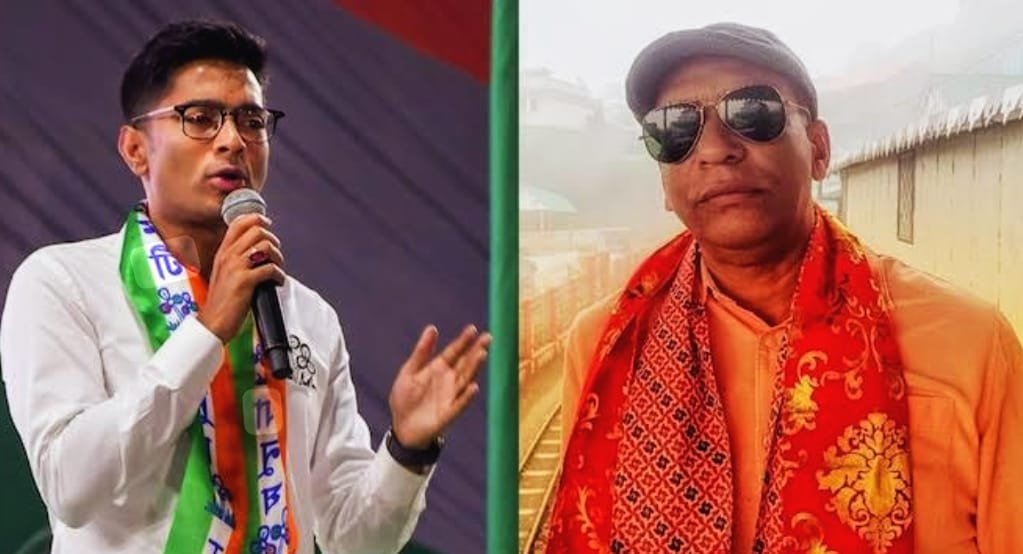
The Calcutta High Court on Tuesday warned Trinamool Congress leader and MP Abhishek Banerjee that it may pass an ex-parte order in an election petition filed against him over alleged irregularities in the 2024 Lok Sabha polls from Diamond Harbour, after his counsel sought more time to file a written response. The matter, listed as EP/05/2024 (Abhijit Das Bobby vs Abhishek Banerjee), was heard by Justice Sugato Majumdar, who expressed displeasure over repeated delays. Banerjee’s legal team has already sought adjournments on three earlier occasions but has yet to file a written reply. On Tuesday, Banerjee’s counsel again sought time, drawing sharp objections from senior advocate Bilwadal Bhattacharya, appearing for petitioner Abhijit Das, a rival candidate. Justice Majumdar initially proposed imposing a fine of 5,000 rupees ($60) for the delay but later waived the penalty at the request of the defence counsel. He nevertheless set August 28, 2025, as the “final opportunity” for Banerjee to submit his response, cautioning that failure to do so would result in an ex-parte order. Preservation of records The case relates to allegations of malpractice and “booth capturing” during the general elections. On April 8 this year, the High Court directed the Chief Election Commissioner of India and the District Magistrate-cum-District Election Officer of South 24 Parganas to preserve all election-related documents, devices, and CCTV footage. That order remains in force, ensuring that key evidence is secured. Call for forensic testing During Tuesday’s hearing, Bhattacharya urged the court to send electronic voting machines (EVMs), CCTV recordings and other election materials for forensic examination. In response, counsel for the Election Commission of India (ECI) said the Commission would file a written application opposing such a move. Court records also show that ECI’s counsel appeared in the matter even before the Commission was formally served notice. The judge remarked that such conduct raised “serious doubts” about the neutrality of the constitutional body. Wider significance The petition against Banerjee, who is the nephew of West Bengal Chief Minister Mamata Banerjee and a prominent face of the ruling Trinamool Congress, has drawn close attention in the state’s political circles. Each hearing has seen sharp exchanges, with the court’s directions and observations adding to the controversy. The next hearing has been scheduled for September 4, 2025. Analysts say the High Court’s firm stance, the demand for forensic scrutiny, and questions over the Election Commission’s role have made the case a political flashpoint in West Bengal, potentially influencing the broader narrative around electoral integrity.
Rains Wreak Havoc Across States, Toll In Kishtwar Cloudburst Touches 63
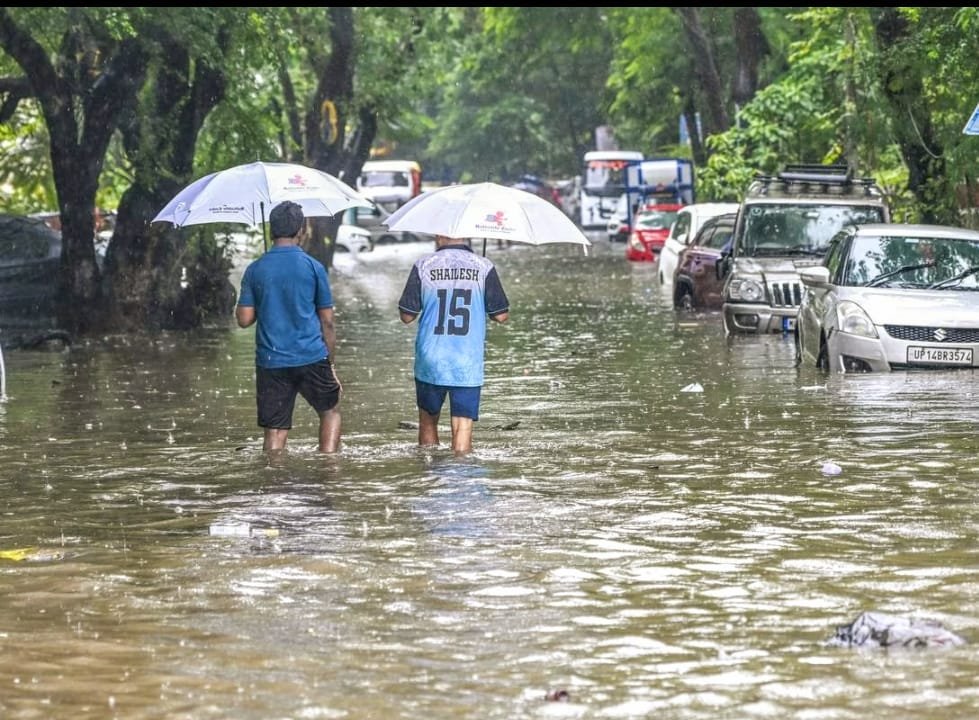
Heavy rains wreaked havoc across several states on Monday. Maharashtra was the worst-hit as 200 people were stranded and five reported missing prompting authorities to deploy the Army for rescue efforts even as multiple landslides in Himachal Pradesh led to closure of nearly 400 roads. In the cloudburst-hit village in Jammu and Kashmir’s Kishtwar district, two more bodies were recovered from the debris taking the death toll in the August 14 disaster to 63, as a search operation continued for the fifth day despite intermittent rains. In Mumbai, relentless downpours brought the city to a standstill, prompting the civic body to declare a holiday for schools and colleges. Several parts of the country’s financial capital received more than 100 mm rainfall in nine hours on Monday. Incessant rains in Mumbai also resulted in hardships to those visiting a hospital in Chembur hit by waterlogging. Several people were seen carrying ailing kin on their backs to gain access to the Maa General Hospital, which is run by the Brihanmumbai Municipal Corporation (BMC). The situation was brought under control by evening, an official said. In Maharashtra’s Nanded district, more than 200 people were stranded in floods amid incessant rains, forcing authorities to call the Army for rescue and relief efforts. Chief Minister Devendra Fadnavis said five persons are reported missing from Mukhed taluka of the district, around 600 km from Mumbai. Many flights were affected due to poor weather conditions in Mumbai, with some executing “go-arounds” and one flight diverted. The heavy downpour led to low visibility and increased congestion on access roads, causing inconvenience to both arriving and departing passengers, an airport official said. Fadnavis said Mumbai received 177 mm rain in six to eight hours on Monday and asked citizens to observe all precautions since more is expected through the day along with high tides. District collectors of Nanded, Latur, and Bidar are coordinating with each other to carry out rescue operations, he said. “One NDRF team, one military unit, and a police team are working in coordination for the rescue efforts. A military unit from Chhatrapati Sambhajinagar has also been dispatched,” Fadnavis said. As heavy rains lashed Mumbai on Monday, waterlogging was reported in several pockets, leading to traffic jams. In light of the incessant showers lashing Mumbai, the BMC declared a holiday for all schools and colleges in the city operating in the second shift (post 12 pm).
West Bengal CM Questions AIIMS Survey, Links It to NRC Exercise
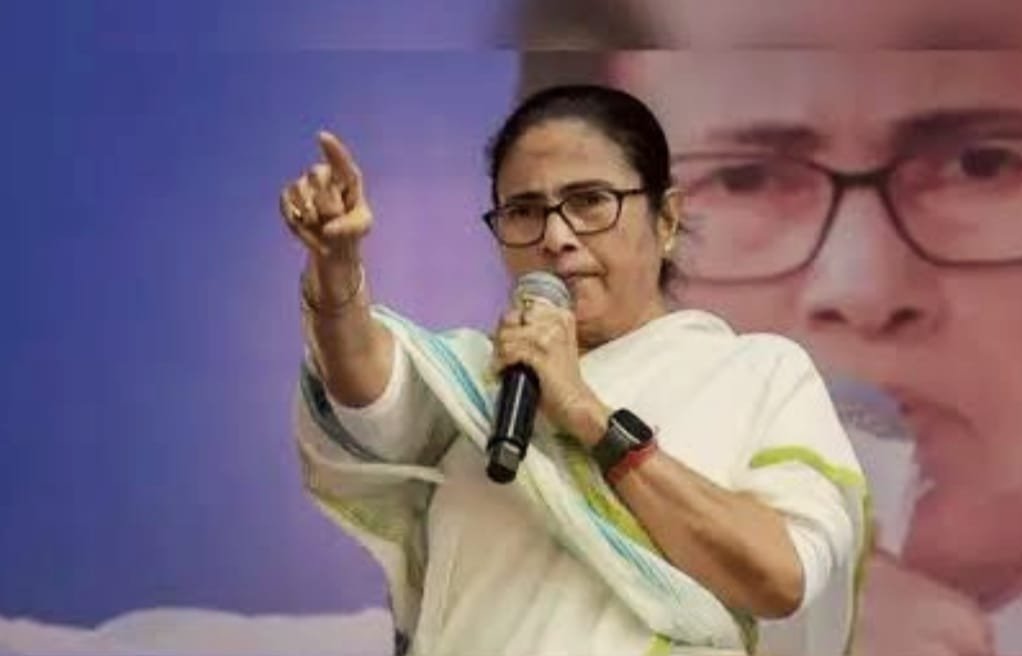
West Bengal Chief Minister Mamata Banerjee has raised strong objections to a survey being conducted by the All India Institute of Medical Sciences (AIIMS) Kalyani, alleging that the exercise—ostensibly on mental health—was in fact aimed at collecting data for a future National Register of Citizens (NRC). Speaking at a press conference in Nabanna on Monday following a state cabinet meeting, Ms Banerjee warned citizens against sharing personal information with surveyors. “I have learnt that AIIMS Kalyani, for which we had given land, is carrying out a survey in the name of mental health, but the real purpose is NRC,” she told reporters. The Chief Minister further stressed that the state government had no involvement in the survey. “If the state conducts such an exercise, people will be informed beforehand. But this direct involvement in political work is not acceptable. I urge AIIMS not to play this game,” she said, cautioning residents to “stay alert and not provide details to anyone.” According to sources, Ms Banerjee also flagged the matter during the cabinet meeting, reiterating that health was a subject under the state list and accusing a central institution of overstepping its mandate. AIIMS Kalyani has since issued a statement clarifying its position, although details of the clarification remain limited. The controversy touches a raw nerve in West Bengal, where the NRC—implemented in Assam in 2019—remains a politically charged issue.






